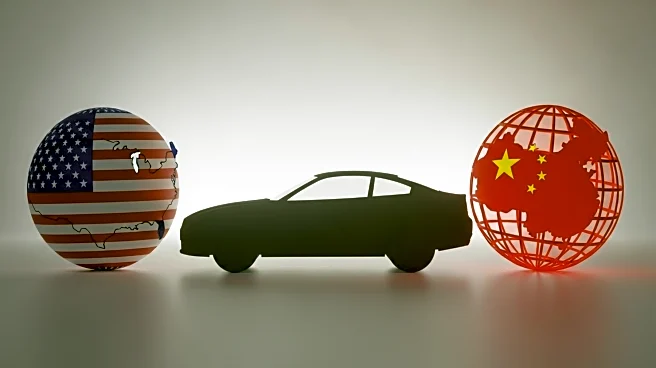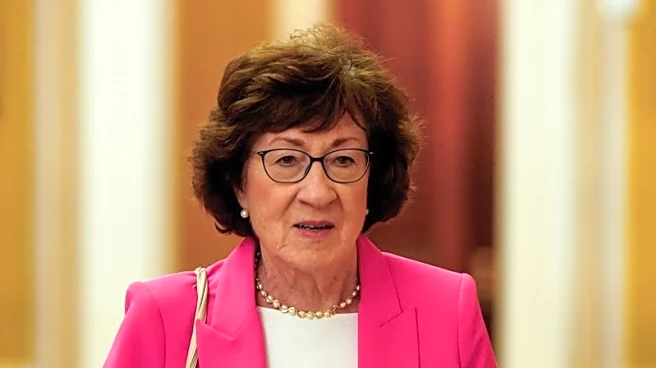What's Happening?
Mexico is planning to raise tariffs on Chinese cars and components from 20% to 50% under pressure from the U.S., which views Mexico as a potential route for Chinese companies to access the U.S. market. Chinese companies currently account for around 13-14% of the Mexican light vehicle market, with most of their share being imported. The tariff increase is part of broader trade tensions involving the U.S., Mexico, and China, as countries navigate complex trade relationships and policies.
Why It's Important?
The increase in auto tariffs highlights the ongoing trade tensions between the U.S., Mexico, and China, with potential implications for the automotive industry and international trade relations. The tariffs may affect the competitiveness of Chinese vehicles in the Mexican market and influence trade dynamics between the countries. The situation underscores the broader challenges of implementing and enforcing complex tariff structures, which can create tensions and impact economic stability. The potential for retaliatory measures and shifts in trade partnerships is significant, as stakeholders assess the impact of these policies.
What's Next?
The tariff increase may lead to further negotiations and discussions between the U.S., Mexico, and China as they seek to address trade tensions and find mutually beneficial solutions. The situation may prompt stakeholders in the automotive industry to advocate for policy changes and explore alternative markets to mitigate the impact of tariffs. The broader trade dynamics between the countries will likely continue to influence automotive trade patterns and negotiations.
Beyond the Headlines
The ethical and economic implications of the tariff increase are complex, as they affect international trade relations and domestic economic policies. The situation may lead to shifts in global supply chains and trade partnerships, as countries seek to navigate the impact of tariffs and protectionist measures. The long-term effects on U.S. competitiveness and market access could be significant, prompting discussions on trade policy reform and international cooperation.









